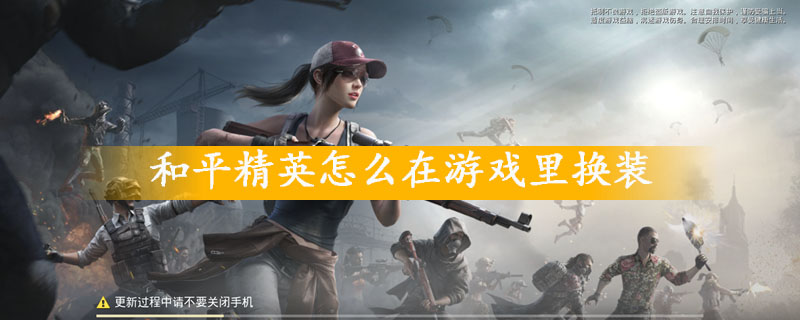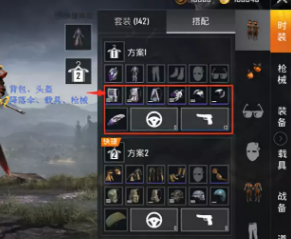us going digital currency snippets
CITIC Securities: It is expected that the global semiconductor and hardware fundamentals will resume their upward trend from the second quarter of next year. According to the CITIC Securities Research Report, the global semiconductor and hardware fundamentals are expected to remain weak from the fourth quarter of 2024 to the first quarter of 2025, and will resume their upward trend from the second quarter of 2025. Similar to 2024, GenAI is expected to continue to be the core driving force, but industrial opportunities are expected to continue to spread around NVIDIA. At the same time, we should also pay attention to the recovery progress of IT expenditure of European and American enterprises after the US election, the pull of end-side AI and windows10 EOL on consumer electronics and bulk storage chips, and the recovery process of automobile and industrial sectors at the bottom of the cycle. Tariff and trade policies, US macro and inflation data, and GenAI technology progress are expected to continue to be the core influencing variables of the industry. At the sub-sector level, our preference order is: advanced process, AI network (Ethernet equipment and high-speed interface), AI computing chip (ASIC, commercial GPU), AI server, enterprise IT equipment (network equipment, high-end storage, general server), consumer electronics (PC, mobile phone), analog chip, semiconductor equipment, bulk storage chip, mature process and so on.Pfizer announced an increase in its quarterly dividend, and American pharmaceutical giant Pfizer said on Thursday that it would increase its quarterly dividend by 2.4%, from 42 cents to 43 cents per share. The new dividend is equivalent to $1.72 per year, which means that the annual yield is about 6.8%. Albert Bourla, CEO of Pfizer, said that the dividend increase highlighted the company's strong financial performance, execution and commitment to return capital to shareholders.Japan's short-term survey index of large-scale manufacturing industry in December reported 14, with an estimated 13.
Britain's GFK consumer confidence index was negative 17 in December, the highest since August, and negative 18 in November. The survey estimated that it was negative 18.CITIC Securities: Short-term white horse style may be dominated by stages due to compensatory growth and repair. CITIC Securities Research Report pointed out that looking forward to 2025, we expect that the market style will gradually switch from individual investors to institutional investors, and ETF will become an important configuration tool. We believe that the construction of ETF portfolio should mainly depend on the judgment of style rotation and timing. We believe that in the short term, Politburo meeting of the Chinese Communist Party and the Central Economic Work Conference will once again confirm the policy inflection point, which is expected to boost institutional investors' risk appetite, and the white horse style may prevail in stages due to compensatory growth and repair. However, in the large-cycle environment, it is still unable to meet the conditions for the continued dominance of white horse stocks, and it is necessary to continue to observe the price signals and policies.People's Daily: Ensure that artificial intelligence is always a "friend". At present, the ability of artificial intelligence is comparable to that of human brain in many aspects, but it cannot accurately distinguish right from wrong in terms of value. This means that it is necessary to strengthen the supervision and regulation of artificial intelligence from many aspects. In recent years, many countries, including China, have introduced artificial intelligence development plans, management methods and supervision principles, precisely to ensure that technology truly serves people and benefits society. No matter how far artificial intelligence develops, it all comes from human design and is an extension of human wisdom. Artificial intelligence is doing more and more work and becoming more and more intelligent. We must take precautions to ensure that it is always a "friend".
Ministry of National Defense: There is no need for the Japanese side to be frightened. On the morning of December 13th, Senior Colonel Wu Qian, director of the Information Bureau of the Ministry of National Defense and spokesman of the Ministry of National Defense, released news about the recent military-related issues. Reporter: Japanese Prime Minister Shi Pomao recently delivered a policy address, saying that the current international order is facing major challenges. Chinese aircraft carriers sail in the waters close to Japan's territorial waters, and carrier-based aircraft have conducted thousands of take-off and landing trainings in the Pacific Ocean; Based on the national security strategy, Japan will greatly strengthen its defense forces. What is China's comment on this? Wu Qian: The so-called "China military threat" was hyped by the Japanese side only to cover up its usual trick of getting rid of the shackles of the peaceful constitution and returning to the old road of military expansion. As a matter of fact, the diplomatic and defense departments of China and Japan have been maintaining communication on air and sea security issues. There is absolutely no need for the Japanese side to be jittery and nervous. The publication of these data just proves that the Japanese side has been tracking, monitoring and interfering with Chinese ships and aircraft at close range for a long time, endangering the safety of Chinese ships and aircraft and easily causing sea and air safety problems. In recent years, despite the opposition of the international community, Japan has gone further and further on the road of military expansion, which has aroused strong concern among neighboring countries and the international community. We urge Japan to draw lessons from history, be cautious in the field of military security and do more things that are conducive to maintaining regional peace and stability. China is willing to continue to maintain communication with Japan on properly handling air and sea emergencies, and hopes that Japan will move in the same direction with China, take the overall situation into consideration, take the right path, and jointly safeguard the stability of the air and sea situation and the overall situation of Sino-Japanese relations.Guotai Junan: The rise of leading enterprises and the downward shift of costs are important features of the steel industry entering a new cycle. Guotai Junan issued a document saying that with the change of demand structure, the demand for plates has steadily increased, and the demand for high-end plates such as automobiles, household appliances, shipbuilding, offshore engineering and energy is strong. The added value and profit per ton of products brought by leading companies' active adjustment of product structure, accumulation of products, R&D drive, continuous capital expenditure and equipment investment have been significantly improved, gradually widening the gap with the industry average gross profit. When the industry is facing the marginal losses of most steel enterprises, leading companies still maintain a high profit level by relying on the cost advantages brought by product differences and management, and the rise and differentiation of industry leaders are emerging. On the other hand, with the gradual increase in the supply side and the difficulty in improving the demand side, iron ore has gradually entered a loose cycle, and the steel cost constraints are expected to gradually improve.The central bank is in charge of the Financial Times: A more active and promising macro policy is to implement a moderately loose monetary policy. The front page of the Central Bank's Financial Times commented that the Central Economic Work Conference clearly stated that it is necessary to "implement a more active and promising macro policy". A more active macro policy is to implement a moderately loose monetary policy. The change of monetary policy is always closely related to a country's macroeconomic situation. Since the monetary policy was set as "stable" in 2011, the monetary policy stance has changed to "moderately loose" again after many years. This decision not only marks the flexible response and active adjustment of China's economic policy in the face of the current complex economic situation at home and abroad, but also reflects the management's profound insight and precise policy on market demand, downward pressure on the economy and deflation risk.
Strategy guide 12-14
Strategy guide 12-14
Strategy guide 12-14
Strategy guide 12-14
Strategy guide


































